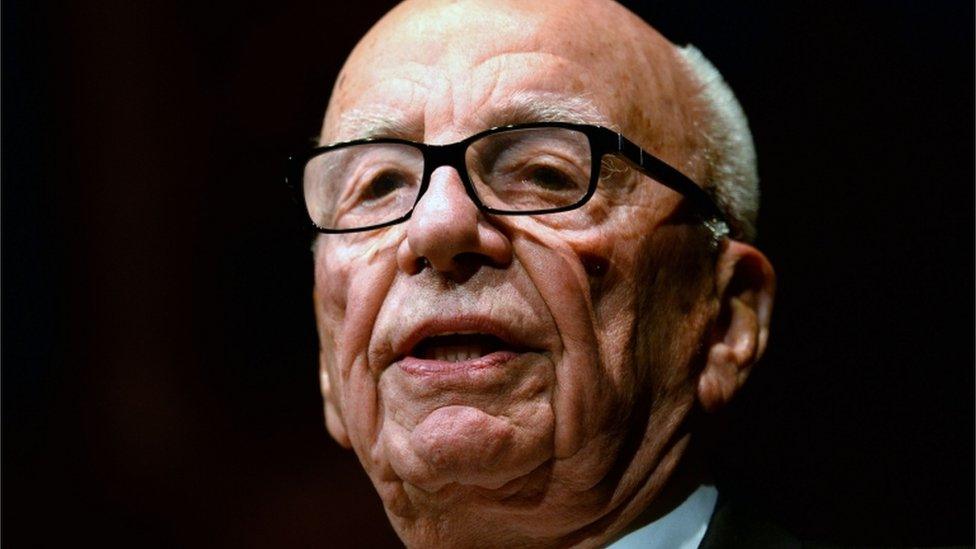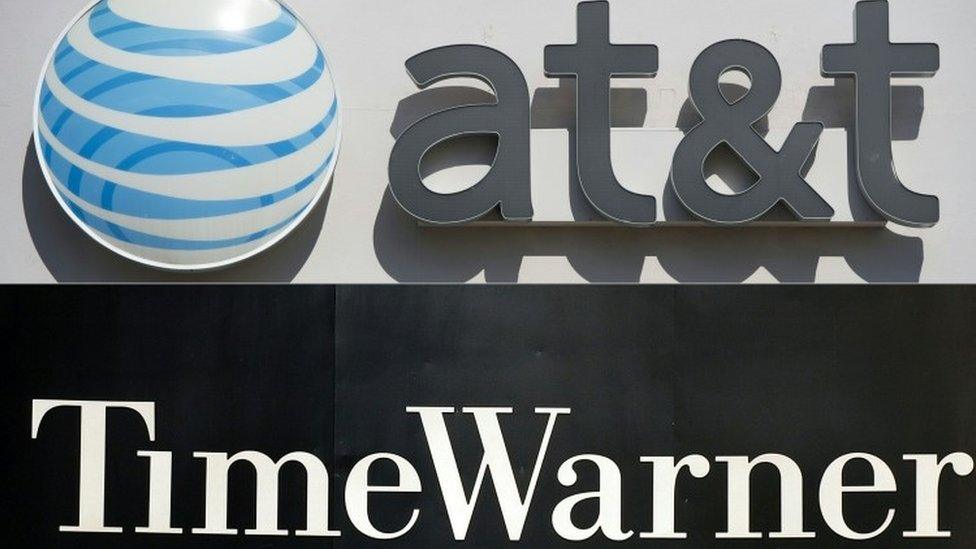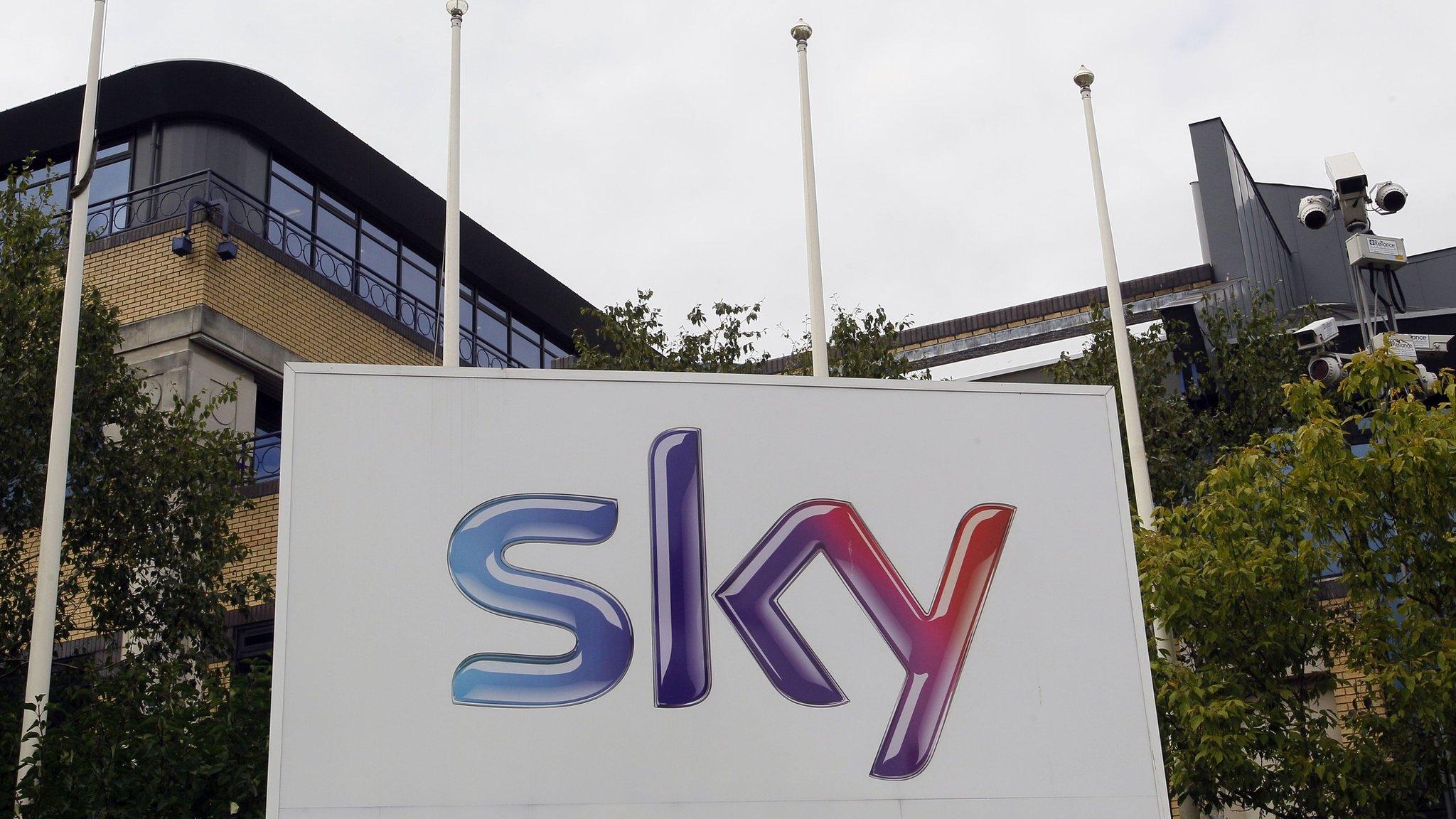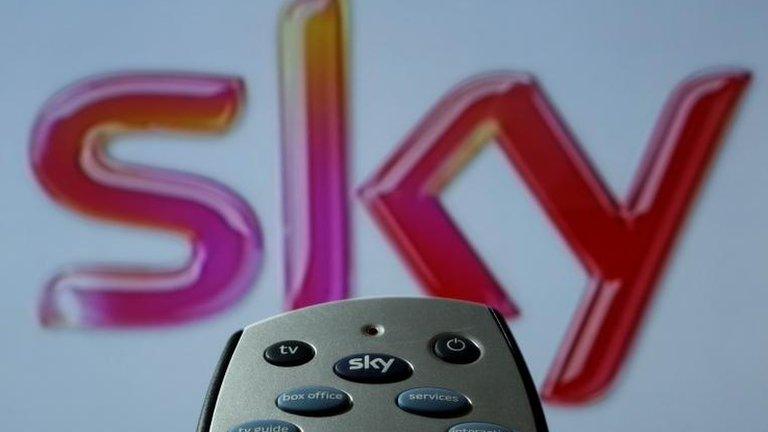Rupert Murdoch: Cunning Fox still leads media pack
- Published

Is Rupert Murdoch about to take full control of Sky?
Rupert Murdoch wants - through 21st Century Fox - to buy the 61% of Sky that it does not own. Will Theresa May's government let him?
This is the question many industry-watchers are asking. It is the wrong question.
The decision is not up to the prime minister. It will be for Karen Bradley, a member of her Cabinet, to decide whether to refer the matter to Ofcom.
One well-placed Conservative source told me on Monday morning that Mrs Bradley is likely to refer, saying: "What does she have to lose? Nothing."
But it would be bizarre if Mrs Bradley did not find the time to discuss this matter with the prime minister, just as it would be bizarre if the subject of Sky's ownership did not come up when May and Murdoch met in New York, external in September.
There are two components to the domestic regulatory hurdle Murdoch now faces.
First, whether his full ownership of Sky would represent excessive concentration of media power.
Second, whether he - and by extension his son, James, chairman of Sky, and CEO of Fox - are "fit and proper persons" to buy the British broadcaster.
This scrutiny does not take place in a political vacuum. The phone-hacking scandal consumed Murdoch's previous bid, in 2010-11.

Sky bid:
US media giant 21st Century Fox has made a takeover approach for Sky that values the UK-based satellite broadcaster at £18.5bn.
The proposed offer is worth £10.75 a share in cash, a premium of 36% to the closing price on 8 December.
Sky shares ended 26.6% higher at 999.8p in London following the announcement.
Rupert Murdoch controls 21st Century Fox, which already owns a 39.1% stake in Sky.

Signs of a deal
This time is different. In conversations with sources at 21st Century Fox and across government, I can report that the early betting suggests this deal with go through.
That is not a prediction: it simply reflects the current mood.
The "fit and proper person" test may not be as much of an issue as opponents of Murdoch, such as the hacking victims' group Hacked Off, Vince Cable,, external or Ed Miliband,, external believe.
Rupert Murdoch: "James and I would like to say how sorry we are"
When famously summoned to by the Sergeant-at-Arms to appear in front of John Whittingdale's parliamentary Select Committee, external, Murdoch is known to have attended partly because he did not want to jeopardise his "fit and proper person" status.
In the government's eyes, he has already passed that test, because he owns a broadcasting licence.
As for media plurality, those opponents of Murdoch will argue that he controls too much of our media already.
In Murdoch's defence, the ambitions of Netflix, Amazon Prime and BT, among others, have diluted media ownership - albeit not in the crucial area of news, where Murdoch can point to new levels of digital consumption, driven largely by Facebook and Google.
At the European level, the Commission will consider whether or not there are competition issues given Murdoch owns Sky Deutschland and Sky Italia - but he owned both when the Commission approved the last bid. So it would be peculiar for them to overturn their earlier decision.
Now we see too, of course, why Murdoch split up his company, hiving off the news business from the entertainment side. This latest bid, coming from 21st Century Fox rather than News Corp, puts distance between Murdoch's news operation and Sky.
The takeover panel at Sky will decide by 6 January whether to formally accept the offer or not and if they want, can extend this deadline.
Labour MP Kevin Brennan, the Shadow Arts and Heritage Minister, tabled an urgent question on Monday afternoon. It will be answered by Matt Hancock MP, the digital and culture minister, because Mrs Bradley is unavailable.
Changing media landscape
Beyond the politics, the business rationale for Murdoch's bid, which has long been mooted, is fascinating. It is an example of the coming consolidation in the media industry.
The substantial fall in sterling relative to the dollar since Britain voted to leave the European Union on 23 June has made Sky a much more attractive asset.
American bidders for British assets are in a strong position. As Nils Pratley has argued,, external 21st Century Fox earns profits in dollars that, in sterling terms, are worth 15% more than they were in June.

AT&T and Time Warner may be set to merge
Moreover, Sky's share price has been falling, amid industry-wide fears of a slowdown in television advertising and the swift rise of those competitors.
But there is another aspect to the business rationale.
In 2017, it seems inevitable that there will be substantial consolidation across the media industry. The mooted merger of AT&T and Time Warner, perhaps the biggest story in the media business in 2016, fits with this trend.
As this Harvard paper , externalfrom 2002 argued, the industries that consolidate tend to be new.
In media today, plenty is new - often frighteningly so for those employed in the sector. Ultra-rapid technological change is reinventing how media - call it journalism, content, or story-telling if you like - is both created and distributed.
The coming consolidation across the industry, which will often meet insuperable regulatory hurdles, will mostly tend to be a marriage of content with distribution.
In other words people who make the intellectual stuff and tell the stories (content) marrying those who own the pipes that send it round (distribution).
Time Warner (content) and AT&T (distribution) fit this trend. So too does the oft-suggested takeover of Netflix by Disney, and of ITV by someone like BT or their minority shareholder Liberty.
Twenty-first Century Fox has a phenomenal volume of world-class media content and Sky has access to millions of homes.
In attempting to marry the two at a time when the price is low, as so often throughout his career, Murdoch has shown he is ahead of the curve.
- Published12 December 2016

- Published9 December 2016
